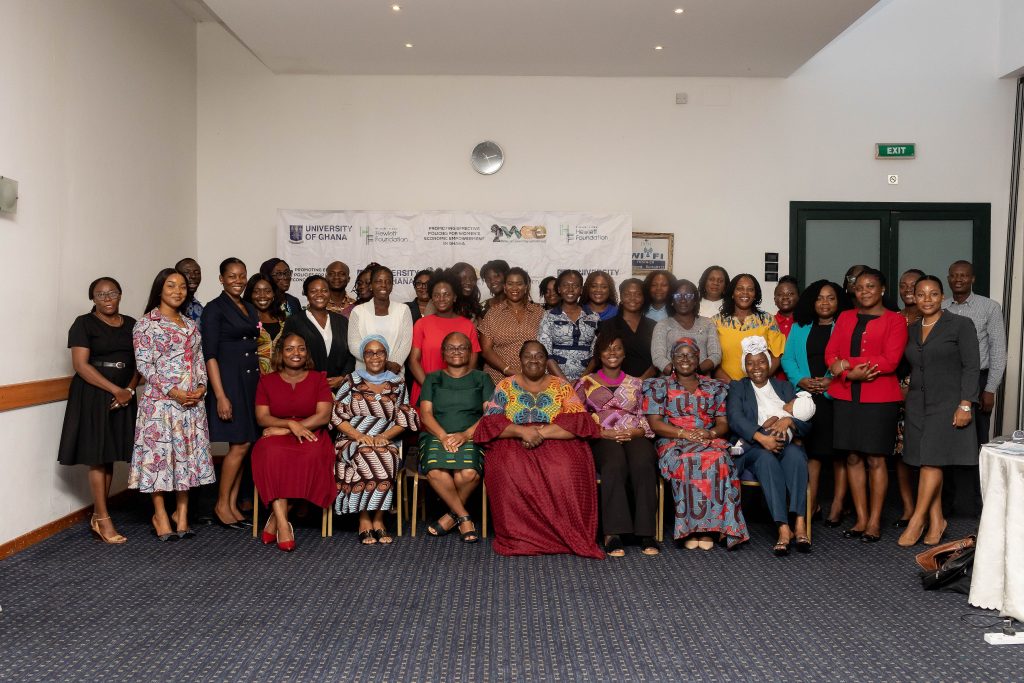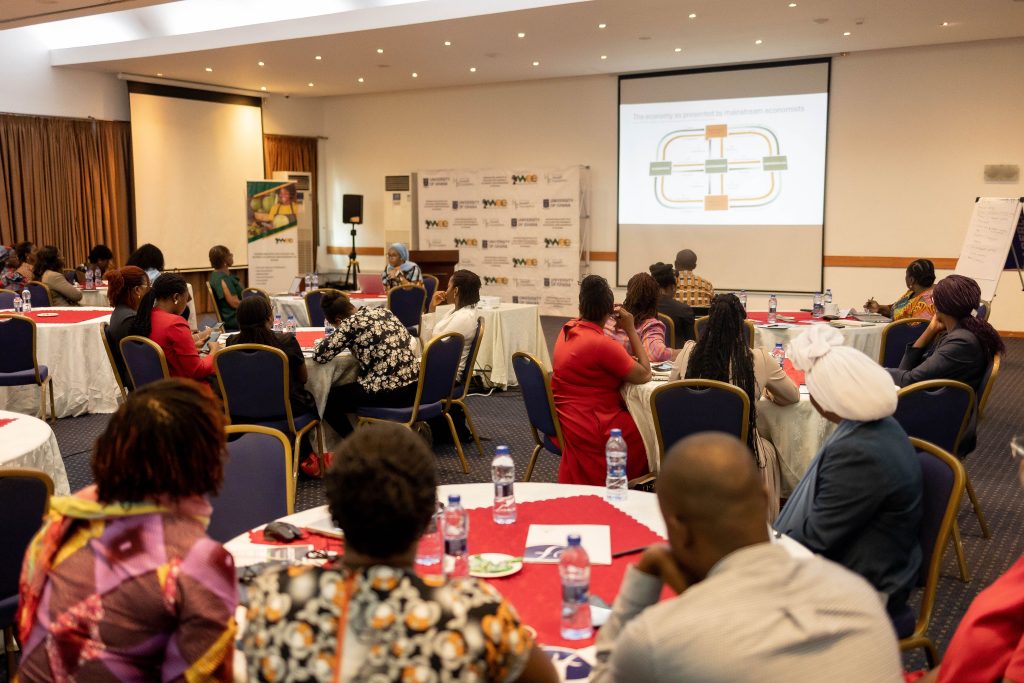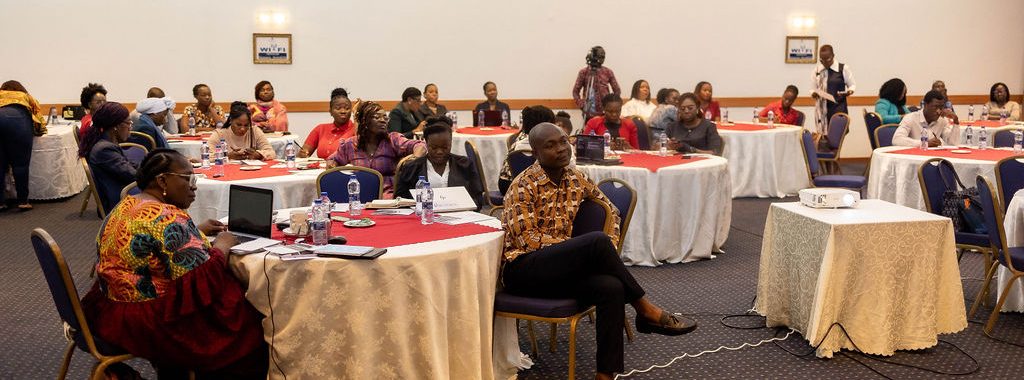Empowering women economically isn’t just about offering opportunities; it’s about policymaking and implementation that reflect women’s unique challenges and strengths. This key idea was at the heart of a workshop organised by the “Promoting Effective Policies for Women’s Economic Empowerment” (WEE-Ghana Project) on October 21, 2024 at the Fiesta Royale Hotel, in Accra. The activity brought together key policymakers and representatives from academia, women’s organisations, as well as the business sector. The agenda? Building their capacity to develop and advocate for policies that account for the realities of Ghanaian women.

Participants at the ‘Gender-Sensitive Policy Design and Analysis’ workshop
Elaborating on the topic, ‘Understanding the Economy and Economic Policy-Making from a Gender Perspective,’ a co-principal investigator on the project, Professor Abena Daagye Oduro, underscored a gender perspective as looking beyond economic growth as the sole policy goal. Instead, “policies should focus on the well-being of all individuals, environmental sustainability, and equity.”
Professor Oduro further noted that while traditional economic models emphasise productive activities, a gender-inclusive economy, for instance, considers unpaid care work—such as cooking, cleaning, and caregiving—as essential contributions to society. “Recognising and redistributing this unpaid labour is critical to women’s economic empowerment,” she highlighted.
Leading a session on ‘Gender-Responsive Policy-making’ another co-principal investigator, Professor Dzodzi Tsikata, drew attention to the importance of understanding underlying values in policy development. She emphasised that effective policy-making must consider the interests of all affected groups, especially marginalised or disadvantaged ones, to ensure inclusivity and fairness.
“The ‘normative approach’ is more suitable for formulating and analysing policies from a gender equity perspective, unlike the ‘technocratic view’, which narrowly defines success based on empirical outcomes and specific programmatic criteria,” Professor Tsikata argued.
She explained, “The ‘normative’ approach, also, involves using tools that assess gender impact from policy design to implementation. Importantly, gender-sensitive policies must focus on real issues impacting women, such as financial access, fair work conditions, and the burden of unpaid care work, to avoid reinforcing existing inequalities.”
Building Momentum for Change
As the second of six planned workshops, this gathering was more than just a discussion-participants left with fresh perspectives, stronger networks, and a shared commitment to transform policy for the benefit of Ghanaian women everywhere.

Professor Abena Oduro leading the session on ‘Understanding the Economy and Economic Policymaking from a Gender Perspective’
One participant made this observation, “While data is crucial, funding is equally significant, as the source of funding often shapes the research focus and objectives. International organisations generate data tailored to their specific agendas, presenting findings that align with their priorities. However, if the Ghanaian government were to allocate dedicated funds to lead its own research, the resulting data would more accurately reflect the true nature of the issues at hand.”
Another bemoaned how the narrow definition of the term “gender-disaggregation” impacted effective targeting. She noted, “I’ve realised over time that whenever we talk about gender-disaggregation, it typically ends with just men and women. But we need to go further—it should cut across skills levels, and age profiles. This broader approach is essential for effective targeting.”
Why Gender and Policy?
It is an undeniable fact that, Ghanaian women have been integral to the economy, dominating the market scene and today ranking among the world’s top entrepreneurs. However, their economic contributions are not matched by equitable wealth or opportunity. Research shows that while Ghanaian women are highly entrepreneurial, they own only about 30% of household wealth[1] and have limited access to formal financial services—just 42% compared to 55% of men.[2] These numbers highlight a systemic issue: many policies, designed with neutrality in mind, overlook the unique challenges faced by women.
What’s Next?
The momentum is building, and the WEE-Ghana project isn’t slowing down. This three-year initiative, in collaboration with NETRIGHT and the Executive Women’s Network, to achieve a critical mass of economically empowered women in Ghana, is committed to reshaping the policy landscape.
Stay tuned, as we continue this journey, to help create a Ghana where policies uplift and empower women, allowing them not just to participate in the economy but to lead and thrive. Stay informed, get involved, and make a difference with WEE-Ghana.
[1] Oduro et al (2011: 34)
[2] World Bank (2020)

